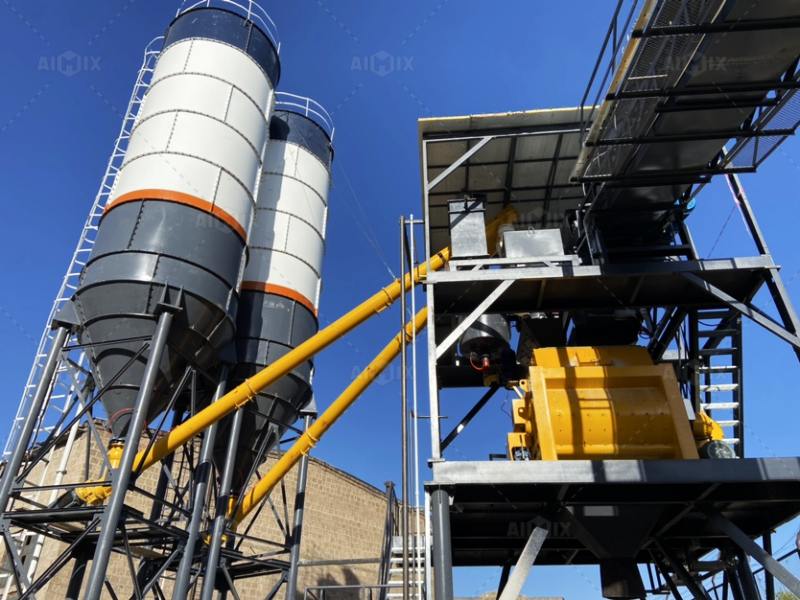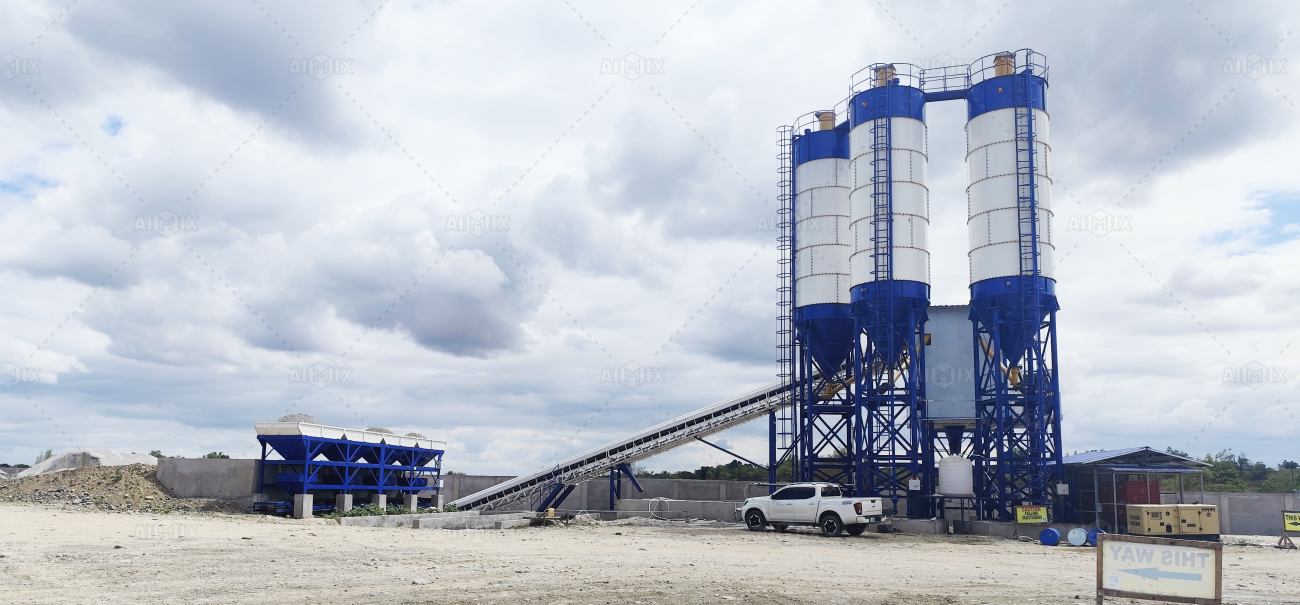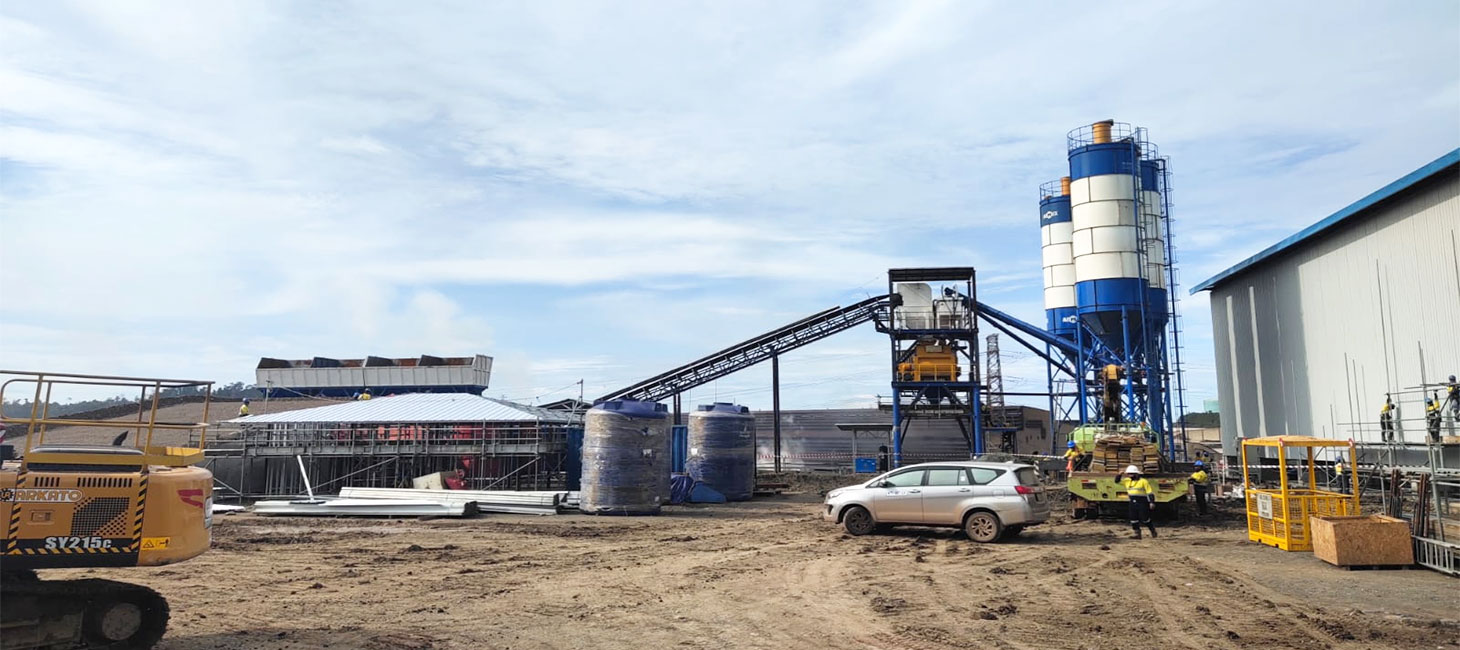Ready-mix concrete (RMC) has become a cornerstone of modern construction, offering high-quality, consistent, and versatile concrete for infrastructure, residential, and commercial projects. As demand for ready-mix concrete grows globally, understanding RMC plant setup cost is critical for investors, contractors, and construction companies planning to enter this sector. In addition, insights into how to start RMC plant, available ready mix concrete plant for sale, and reliable RMC plant manufacturers help streamline investment decisions and operational planning.
Understanding RMC Plant Setup Cost
The RMC plant setup cost depends on several key factors, including plant capacity, technology, automation level, location, and site preparation requirements. Generally, setup costs include:
Land and Infrastructure: A stationary RMC plant requires adequate land for equipment, storage silos, and loading areas. Site development, including leveling, drainage, and access roads, can contribute significantly to overall setup costs.
Equipment Investment: The cost of the ready mix concrete plant for sale itself constitutes the largest portion of setup expenses. Equipment may include:
Cement silos
Aggregate storage bins and conveyors
Concrete mixers (twin-shaft, planetary, or drum type)
Weighing and batching systems
Control panels and automation software
Installation and Commissioning: Installing and commissioning a ready-mix plant requires skilled labor and engineering support. Many RMC plant manufacturers provide turnkey services, including site preparation, installation, and staff training, ensuring the plant operates efficiently from day one.
Operational Expenses: Beyond setup, operational expenses such as utilities, maintenance, labor, and raw materials must be considered when calculating the total investment for an RMC plant.
Overall, the RMC plant setup cost varies widely depending on plant size. Small-scale plants with 25–50 m³ per hour capacity are significantly less expensive than large-scale plants capable of producing 200 m³ per hour or more. Understanding these cost structures helps investors choose the right capacity for their target market and project scale.

How to Start RMC Plant
Starting a ready-mix concrete business requires careful planning, regulatory compliance, and strategic investment. Here are key steps:
Market Research: Analyze local demand for concrete, identify competitors, and assess potential clients, including contractors, developers, and government projects.
Select Plant Capacity and Type: Decide whether to invest in a stationary or mobile RMC plant. Stationary plants are ideal for long-term, high-volume projects, while mobile plants offer flexibility for multiple sites.
Choose a Reliable Manufacturer: Partnering with a trusted RMC plant manufacturer ensures access to quality equipment, technical support, and after-sales service. Leading manufacturers often provide turnkey solutions, which simplify installation, commissioning, and training.
Secure Land and Permits: Ensure compliance with zoning regulations, environmental guidelines, and construction permits before installation.
Staff Recruitment and Training: Skilled operators, maintenance staff, and quality control personnel are essential to maintain consistent production and product quality.
Set Up Supply Chain: Establish reliable sources for cement, aggregates, additives, and water. Efficient supply chain management directly impacts production efficiency and operational costs.
Marketing and Client Acquisition: Develop relationships with contractors, construction companies, and government agencies to secure long-term contracts.
Ready Mix Concrete Plant for Sale: Options and Considerations
Investors looking to start an RMC business often explore ready mix concrete plant for sale options to find equipment that matches their budget and project needs. Plants can be categorized as:
Small-Scale Plants: Suitable for small construction projects and low-volume production. Compact design, lower setup cost, and ease of operation make these plants ideal for new entrants.
Medium-Scale Plants: Ideal for urban construction projects, offering moderate production capacity with a balance of cost and efficiency.
Large-Scale Plants: Designed for high-volume infrastructure projects, these plants provide advanced automation, high-capacity mixers, and enhanced quality control systems.
When selecting a plant for purchase, investors should consider production capacity, technology, automation, energy efficiency, and manufacturer reputation. Partnering with an experienced RMC plant manufacturer ensures that the equipment meets international quality standards and offers ongoing technical support.

Future Trends in Ready-Mix Concrete Production
The RMC industry is evolving rapidly, driven by technological innovation, sustainability requirements, and increasing construction demand. Key trends include:
Automation and Smart Plants: Modern RMC plants increasingly integrate automation and IoT technologies for real-time monitoring, predictive maintenance, and optimized production processes.
Sustainable Concrete Practices: Use of recycled aggregates, supplementary cementitious materials, and energy-efficient production reduces environmental impact and aligns with green construction initiatives.
Mobile Integration: Combining stationary plants with mobile concrete batching plants enables flexible production, rapid deployment, and on-site customization of concrete mixes.
Quality Control Enhancements: Advanced batching systems, automated mixers, and integrated testing equipment ensure consistent concrete quality and compliance with stringent standards.
Cost Optimization: Smart inventory management, efficient logistics, and energy-saving technologies reduce operational costs, improving profitability for RMC plant operators.
Conclusion
Understanding RMC plant setup cost is essential for anyone considering entry into the ready-mix concrete industry. From equipment purchase and installation to operational planning and regulatory compliance, careful preparation ensures successful and profitable operations. By learning how to start RMC plant, evaluating available ready mix concrete plant for sale, and partnering with a reputable RMC plant manufacturer, investors can establish a robust concrete production business.
With trends such as automation, sustainability, and mobile integration shaping the future of ready-mix concrete production, smart investments in RMC plants will provide both immediate productivity and long-term growth opportunities.
